
Organoids, Spheroids & Organs-on-Chips 2024
Alice Soragni Biographical Sketch
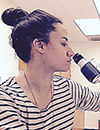
Alice Soragni, Assistant Professor, University of California-Los Angeles
Alice Soragni is an Assistant Professor in the Department of Orthopedic Surgery at UCLA and a member of the Jonsson Comprehensive Cancer Center. Originally from Italy, she received her PhD in Physical Chemistry from ETH Zürich and a postdoctoral fellowship with David Eisenberg (UCLA) before starting her independent lab in December 2016 at UCLA David Geffen School of Medicine.
We develop strategies to test drugs in 3D tumor organoid models in a fast, reliable, high-throughput, inexpensive manner. Requiring few tumor cells, we aim to extend our methods to test combination of chemotherapies or targeted therapies directly on primary tumors from patients' biopsies or surgical samples in order to personalize treatment. Our most current work is focused on sarcoma, ovarian cancer, neuroendocrine tumors as well as neurofibromas.
Alysson Muotri Biographical Sketch

Alysson Muotri, Professor, Director of the Stem Cell Program, University of California-San Diego
PhD in Genetics by University of Sao Paulo, Brazil. Postdoctoral Work at The Salk Instutitue with neural stem cells and neurogenesis. Professor at UC San Diego, Dept. Pediatrics and Molecular & Cellular Medicine.
Hervé Tiriac Biographical Sketch
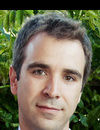
Hervé Tiriac, Assistant Researcher, University of California-San Diego
Dr. Tiriac received his Ph.D. from UC San Diego studying pre-mRNA splicing and transcription with Dr. Tracy Johnson. Herve’s research focuses on developing systems for precision medicine that may be utilized in the fight against pancreatic cancer. Herve did his postdoctoral fellowship with David Tuveson at Cold Spring Harbor Laboratory where he collaborated with Hans Clevers to establish protocols for PDAC organoid generation and testing.
Holger Schmidt Biographical Sketch
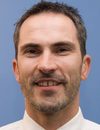
Holger Schmidt, Narinder Kapany Professor of Electrical Engineering, University of California-Santa Cruz
Holger Schmidt received the Ph.D. degree in electrical and computer engineering from the University of California Santa Barbara and served as a Postdoctoral Fellow at M.I.T. He is currently the Narinder Kapany Chair of Optoelectronics and Distinguished Professor of Electrical and Computer Engineering at UC Santa Cruz. He directs the W.M. Keck Center for Nanoscale Optofluidics and has served as the Associate Dean for Research in the Baskin School of Engineering. His research interests cover a broad range in photonics and integrated optics, including optofluidic devices, nanopore sensors, nano-magneto-optics, spintronic devices, and ultrafast optics. He has authored more than 400 publications, several book chapters, and co-edited the CRC Handbook of Optofluidics. He is a Fellow of the National Academy of Inventors, the IEEE and the Optical Society of America. He received an NSF Career Award, a Keck Futures Nanotechnology Award, and the Engineering Achievement Award by the IEEE Photonics Society.
Kevin Healy Biographical Sketch
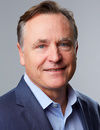
Kevin Healy, Jan Fandrianto and Selfia Halim Distinguished Professorship in Engineering, University of California-Berkeley
Kevin E. Healy, Ph.D. is the Jan Fandrianto and Selfia Halim Distinguished Professor in Engineering at the University of California at Berkeley in the Departments of Bioengineering, and Materials Science and Engineering. He served as Chair of the Department of Bioengineering from 2011 to 2015. He is a thought leader and innovator working at the interface between stem cells and materials science to develop dynamic engineered systems to explore both fundamental biological phenomena and new applications in translational medicine. His group currently conducts research in the areas of: bioinspired stem cell microenvironments to control stem cell lineage specification and self-organization into microtissues or organoids; bioinspired systems for regenerative medicine; biological interfaces; and, microphysiological systems for drug development, gene editing, and environmental toxicity screening. Professor Healy is an elected Fellow of AIMBE, AAAS, FBSE, BMES, and recently received an Alexander von Humboldt Foundation Award. He has chaired the Gordon Research Conference on Biomaterials and Biocompatibility, and has been honored with the 2011 Clemson award for outstanding contributions to basic biomaterials science. He is a named inventor on numerous issued United States and international patents relating to biomaterials, therapeutics, stem cells, and medical devices, and has founded several companies to develop these systems for applications in biotechnology and regenerative medicine.
Mandy Esch Biographical Sketch
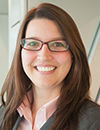
Mandy Esch, Project Leader, National Institute of Standards and Technology (NIST)
Mandy B. Esch is a project leader in the Microsystems and Nanotechnology Division of the National Institute of Standards and Technology. She received a Diploma (equivalent to the American M.S. degree) in Biology and a Dr. rer. nat. (equivalent to the American Ph.D. degree) in Biotechnology from the Julius Maximilians University in Würzburg, Germany. During her PhD research she developed paper-based microfluidics and microfluidic biosensors for the detection of pathogens. In 2001, Dr. Esch joined the Cornell Nanoscale Science and Technology Facility as life sciences liaison. In 2007, she joined the Department of Biomedical Engineering at Cornell University as a Postdoctoral Research Associate. While there, she developed patents for cell culture on a porous 3D surface and for a multi-organ microphysiological system (MPS). She was part of the team that in 2015 received the Lush Science Prize for designing multi-organ fluidic cell culture systems. From 2015 to 2016 Dr. Esch spent a year as Assistant Professor at Syracuse University (Department of Biomedical and Chemical Engineering), where she taught nanobiotechnology. In August 2016 Dr. Esch moved to NIST, where she is focusing on integrating sensors with tissues-on-chips and multi-organ microphysiological systems.
Mehdi Nikkhah Biographical Sketch
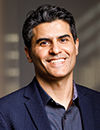
Mehdi Nikkhah, Associate Professor of Bioengineering, Arizona State University
Mehdi Nikkhah is currently an Associate Professor of Biomedical Engineering at Arizona State University (ASU). He completed his postdoctoral fellowship training at Harvard Medical School and Brigham and Women’s Hospital. He received his B.S. in mechanical engineering and M.S. degree in biomedical engineering from Tehran Polytechnic University, followed by a Ph.D. in mechanical engineering from Virginia Tech. His research focuses on integrating micro- and nano-scale technologies, innovative biomaterials, and single-cell resolution analysis to better understand the mechanisms of human disease progression and to develop regenerative medicine strategies for treating organ/tissue failure. Dr. Nikkhah has published more than 80 journal articles (over 11,000 citations, H-index of 48), 8 book chapters, and 100 peer-reviewed conference papers, and holds 10 US patents and invention disclosures. His translational research has been supported by multiple federal, state, and local agencies, including NSF, NIH (R01, R21) and Arizona Biomedical Research Consortium. He has received numerous recognitions and prestigious awards throughout his career, including induction into the American Institute for Medical and Biological Engineering (AIMBE) as a Fellow, induction into the National Academy of Inventors (NAI) as a Senior Member, NSF CAREER Award, BMES-CMBE Young Innovator Award, Flinn Foundation Award, ASU Biomedical Engineering Outstanding Assistant Professor Award, and others. Along with his research endeavors, Dr. Nikkhah is very passionate about educating the next generation of students and scholars, with specific attention to minority and underrepresented groups in science and engineering. He has trained more than 75 trainees, including postdoctoral fellows, PhD/MS students, and undergraduate researchers from diverse backgrounds, in his lab.
Robert Halliwell Biographical Sketch
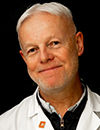
Robert F. Halliwell, Professor Neuroscience, School of Pharmacy, University of the Pacific
Robert F. Halliwell completed postgraduate training in neurological science at University College London, in pharmacology at Ninewells Hospital & Medical School, University of Dundee and a Post-Doctoral Fellowship in Neuroscience at the University of California, Irvine. I previously held a lectureship in Neuroscience at the University of Durham, England and I am currently Professor in Neuroscience in the School of Pharmacy, University of the Pacific. I contribute to Schools of Neuroscience in Africa for IBRO; I am a member of the Medical Ethics Committee at St Joseph’s Medical Center, Stockton, CA, and an Advisor on Mental Health for the Wellness Center of San Joaquin County. My laboratory is addressing the properties and value of neurons derived from a variety of human stem cells for studies in neuropharmacology and neurotoxicology; I have also published work in the history of medicine.
Roger Kamm Biographical Sketch
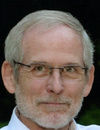
Roger Kamm, Cecil and Ida Green Distinguished Professor of Biological and Mechanical Engineering, Massachusetts Institute of Technology (MIT)
Professor Kamm is currently the Cecil and Ida Green Distinguished Professor of Biological and Mechanical Engineering at MIT, where he has served on the faculty since 1978. Kamm has long been instrumental in developing research activities at the interface of biology and mechanics, formerly in cell and molecular mechanics, and now in engineered living systems. Current interests are in developing models of healthy and diseased organ function using microfluidic technologies, with a focus on vascularization. Kamm has fostered biomechanics as Chair of the US National Committee on Biomechanics (2006-2009) and of the World Council on Biomechanics (2006-2010). Kamm currently directs the NSF Science and Technology Center on Emergent Behaviors of Integrated Cellular Systems. He is the 2010 recipient of the ASME Lissner Medal (American Society of Mechanical Engineering) and the 2015 recipient of the Huiskes Medal (European Society of Biomechanics), both for lifetime achievements, and is the inaugural recipient of the ASME Nerem Medal for mentoring and education. He was elected to the National Academy of Medicine in 2010. Kamm is co-founder of two companies, Cardiovascular Technologies and AIM Biotech, a manufacturer of microfluidic systems for 3D culture.
Shuichi Takayama Biographical Sketch
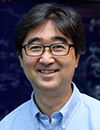
Shuichi Takayama, Professor, Georgia Research Alliance Eminent Scholar, Georgia Institute of Technology
Prof. Shuichi Takayama’s research interests started with bioorganic synthesis at the University of Tokyo and Scripps Research Institute. Subsequently he pursued postdoctoral studies in bioengineered microsystems at Harvard University as a Leukemia and Lymphoma Society Fellow. He spent 17 years at the University of Michigan in the Biomedical Engineering Department and Macromolecular Science and Engineering Program, then moved to the Wallace H. Coulter Department of Biomedical Engineering at the Georgia Institute of Technology and Emory School of Medicine in the summer of 2017. He is an associate editor of Integrative Biology and recipient of the Pioneers of Miniaturization Prize.
Steve George Biographical Sketch

Steven C. George, Edward Teller Distinguished Professor and Chair, Department of Biomedical Engineering, University of California-Davis
Steven C. George, M.D., Ph.D. is a Professor of Biomedical Engineering at the University of California, Davis. He received his bachelors degree in chemical engineering in 1987 from Northwestern University, M.D. from the University of Missouri School of Medicine in 1991, and Ph.D. from the University of Washington in chemical engineering in 1995. He was on the faculty at the University of California, Irvine for 19 years (1995-2014) where he pursued a range of research interests including pulmonary gas exchange, lung mechanics, vascularizing engineered tissues, and microphysiological systems. The NIH FIRST award in 1998 and the CAREER and Presidential Early Career Award for Scientists and Engineers (PECASE) from the National Science Foundation in 1999 have previously recognized his work. While at UCI, he served as the William J. Link Professor and founding Chair of the Department of Biomedical Engineering (2002-2009), the Director of the Edwards Lifesciences Center for Advanced Cardiovascular Technology (2009-2014), and was the PI on a T32 predoctoral training grant from the National Heart Lung and Blood Institute. In 2014 he transitioned to become the Elvera and William Stuckenberg Professor and Chair of Biomedical Engineering at Washington University in St. Louis, and in 2017 moved to the UC Davis. He was elected a fellow in the American Institute of Medical and Biological Engineering (AIMBE) in 2007, a fellow of the Biomedical Engineering Society in 2017, has published more than 140 peer-reviewed manuscripts, and co-founded two early start-up companies. His work is currently funded by grants from the NIH that focus on creating tissue engineered models of the cardiac, pancreas, bone marrow, and cancer microenvironments using induced pluripotent stem cell and microfabrication technology.
